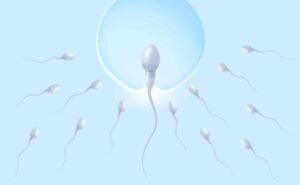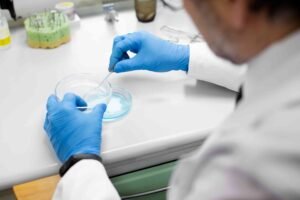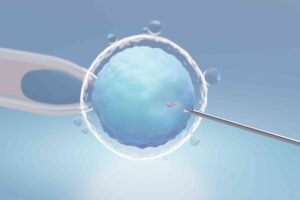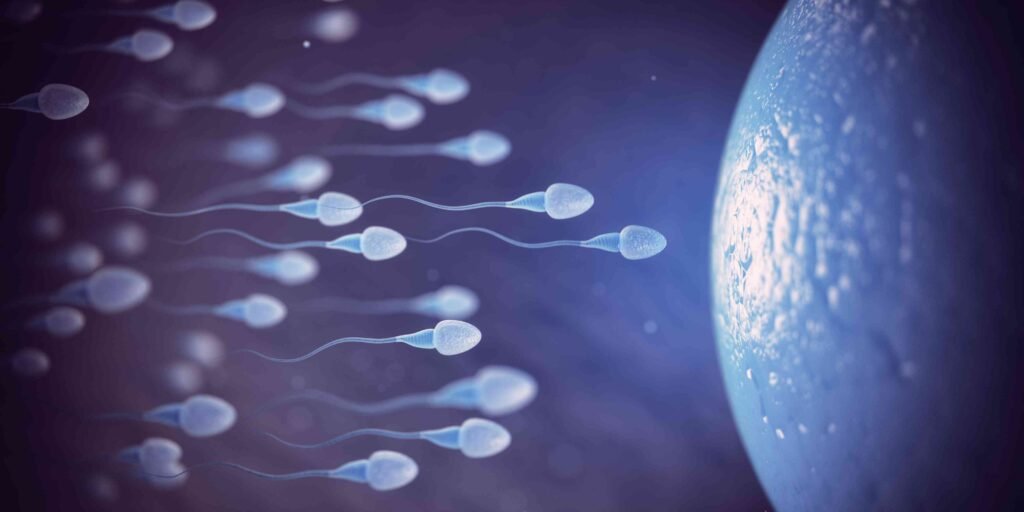If you and your partner have been trying to conceive without success, you might have come across the term “oligospermia.” This condition, characterized by a low sperm count, is a common cause of male infertility. Understanding how low sperm count affects fertility is crucial for couples navigating the challenges of conception.
In this comprehensive guide, we’ll delve into what oligospermia is, its causes, symptoms, diagnosis, and the various ways it can impact fertility. We’ll also explore treatment options and lifestyle changes that can help improve sperm count and enhance the chances of conception.
What Is Oligospermia?
Oligospermia, also known as oligozoospermia, refers to a condition where a man’s semen contains fewer sperm than normal. According to the World Health Organization (WHO), a sperm concentration below 15 million sperm per milliliter of semen is considered low. The severity of oligospermia is often categorized as:
- Mild Oligospermia: 10 to 15 million sperm/mL
- Moderate Oligospermia: 5 to 10 million sperm/mL
- Severe Oligospermia: Less than 5 million sperm/mL
It’s important to note that even with a low sperm count, natural conception is still possible, though it may be more challenging.

Causes of Oligospermia
Several factors can contribute to a low sperm count, including:
1. Medical Causes
- Varicocele: Enlargement of veins within the scrotum can impair sperm production.
- Infections: Certain infections can interfere with sperm production or health.
- Ejaculation Issues: Retrograde ejaculation occurs when semen enters the bladder instead of emerging through the penis.
- Tumors: Cancers and nonmalignant tumors can affect male reproductive organs.
- Hormonal Imbalances: Disorders of the testicles or abnormalities affecting other hormonal systems can impact sperm production.
2. Environmental Causes
- Exposure to Chemicals: Pesticides, herbicides, and industrial chemicals can affect sperm production.
- Radiation or X-rays: Exposure can reduce sperm production.
- Overheating the Testicles: Frequent use of saunas or hot tubs can temporarily lower sperm count.
3. Lifestyle Factors
- Drug Use: Anabolic steroids, cocaine, and marijuana can reduce sperm production.
- Alcohol Consumption: Excessive drinking can lower testosterone levels.
- Tobacco Smoking: Smoking is associated with lower sperm counts.
- Obesity: Can impair fertility in several ways, including directly impacting sperm.

Symptoms of Oligospermia
Oligospermia often doesn’t present noticeable symptoms. The primary sign is difficulty conceiving a child. However, underlying issues causing low sperm count might present symptoms such as:
- Reduced sexual desire or erectile dysfunction
- Pain, swelling, or a lump in the testicle area
- Decreased facial or body hair or other signs of a chromosome or hormone abnormality
Diagnosis
Diagnosing oligospermia involves several steps:
- Semen Analysis: The primary test to assess sperm count, motility, and morphology.
- Hormone Testing: To evaluate levels of testosterone and other hormones.
- Scrotal Ultrasound: To detect varicocele or other testicular issues.
- Genetic Tests: To identify possible genetic causes of infertility.

How Low Sperm Count Affects Fertility?
Understanding how low sperm count affects fertility is essential for couples trying to conceive. A lower number of sperm reduces the likelihood of one reaching and fertilizing the egg. This doesn’t mean conception is impossible, but it may take longer and might require medical intervention.
Moreover, low sperm count is often associated with other sperm abnormalities, such as poor motility (movement) and abnormal morphology (shape), further decreasing the chances of successful fertilization.
In cases of severe oligospermia, assisted reproductive technologies (ART) like in vitro fertilization (IVF) or intracytoplasmic sperm injection (ICSI) may be recommended.
Treatment Options
Treatment for oligospermia depends on the underlying cause:
1. Medical Treatments
- Surgery: To correct varicocele or obstructed vas deferens.
- Antibiotics: To treat infections affecting sperm production.
- Hormone Treatments: To address hormonal imbalances.
2. Assisted Reproductive Technologies (ART)
- Intrauterine Insemination (IUI): Sperm is placed directly into the uterus.
- In Vitro Fertilization (IVF): Eggs are fertilized with sperm outside the body.
- Intracytoplasmic Sperm Injection (ICSI): A single sperm is injected directly into an egg.

3. Lifestyle Changes
- Maintain a Healthy Weight: Obesity can negatively impact sperm count.
- Exercise Regularly: Improves overall health and hormone levels.
- Avoid Substance Abuse: Limit alcohol, quit smoking, and avoid illicit drugs.
- Manage Stress: Chronic stress can interfere with hormones needed to produce sperm.
Conclusion
Oligospermia is a common but often treatable cause of male infertility. Understanding how low sperm count affects fertility is the first step toward addressing the issue. With proper diagnosis, medical treatment, and lifestyle adjustments, many men with oligospermia can improve their sperm count and achieve successful conception.
If you suspect you have a low sperm count, consult a healthcare provider or a fertility specialist. Early intervention can make a significant difference in your journey toward parenthood.


